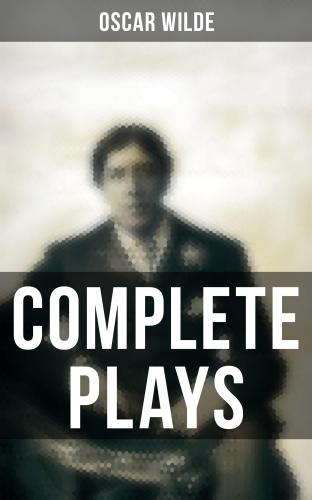I did not.
Yet I know that had I done so,
I had not been thus humbled in the dust,
[Stands up.]
But you had loved me very faithfully.
[After a pause approaches him timidly.]
I do not think you understand me, Guido:
It was for your sake that I wrought this deed
Whose horror now chills my young blood to ice,
For your sake only. [Stretching out her arm.]
Will you not speak to me?
Love me a little: in my girlish life
I have been starved for love, and kindliness
Has passed me by.
GUIDO
I dare not look at you:
You come to me with too pronounced a favour;
Get to your tirewomen.
DUCHESS
Ay, there it is!
There speaks the man! yet had you come to me
With any heavy sin upon your soul,
Some murder done for hire, not for love,
Why, I had sat and watched at your bedside
All through the night-time, lest Remorse might come
And pour his poisons in your ear, and so
Keep you from sleeping! Sure it is the guilty,
Who, being very wretched, need love most.
GUIDO
There is no love where there is any guilt.
DUCHESS
No love where there is any guilt! O God,
How differently do we love from men!
There is many a woman here in Padua,
Some workman’s wife, or ruder artisan’s,
Whose husband spends the wages of the week
In a coarse revel, or a tavern brawl,
And reeling home late on the Saturday night,
Finds his wife sitting by a fireless hearth,
Trying to hush the child who cries for hunger,
And then sets to and beats his wife because
The child is hungry, and the fire black.
Yet the wife loves him! and will rise next day
With some red bruise across a careworn face,
And sweep the house, and do the common service,
And try and smile, and only be too glad
If he does not beat her a second time
Before her child! - that is how women love.
[A pause: GUIDO says nothing.]
I think you will not drive me from your side.
Where have I got to go if you reject me? -
You for whose sake this hand has murdered life,
You for whose sake my soul has wrecked itself
Beyond all hope of pardon.
GUIDO
Get thee gone:
The dead man is a ghost, and our love too,
Flits like a ghost about its desolate tomb,
And wanders through this charnel house, and weeps
That when you slew your lord you slew it also.
Do you not see?
DUCHESS
I see when men love women
They give them but a little of their lives,
But women when they love give everything;
I see that, Guido, now.
GUIDO
Away, away,
And come not back till you have waked your dead.
DUCHESS
I would to God that I could wake the dead,
Put vision in the glazéd eves, and give
The tongue its natural utterance, and bid
The heart to beat again: that cannot be:
For what is done, is done: and what is dead
Is dead for ever: the fire cannot warm him:
The winter cannot hurt him with its snows;
Something has gone from him; if you call him now,
He will not answer; if you mock him now,
He will not laugh; and if you stab him now
He will not bleed.
I would that I could wake him!
O God, put back the sun a little space,
And from the roll of time blot out tonight,
And bid it not have been! Put back the sun,
And make me what I was an hour ago!
No, no, time will not stop for anything,
Nor the sun stay its courses, though Repentance
Calling it back grow hoarse; but you, my love,
Have you no word of pity even for me?
O Guido, Guido, will you not kiss me once?
Drive me not to some desperate resolve:
Women grow mad when they are treated thus:
Will you not kiss me once?
GUIDO
[holding up knife]
I will not kiss you
Until the blood grows dry upon this knife,
[Wildly] Back to your dead!
DUCHESS [going up the stairs]
Why, then I will be gone! and may you find
More mercy than you showed to me tonight!
GUIDO Let me find mercy when I go at night
And do foul murder.
DUCHESS
[coming down a few steps.]
Murder did you say?
Murder is hungry, and still cries for more,
And Death, his brother, is not satisfied,
But walks the house, and will not go away,
Unless he has a comrade! Tarry, Death,
For I will give thee a most faithful lackey
To travel with thee! Murder, call no more,
For thou shalt eat thy fill.
There is a storm
Will break upon this house before the morning,
So horrible, that the white moon already
Turns grey and sick with terror, the low wind
Goes moaning round the house, and the high stars
Run madly through the vaulted firmament,
As though the night wept tears of liquid fire
For what the day shall look upon. Oh, weep,
Thou lamentable heaven! Weep thy fill!
Though sorrow like a cataract drench the fields,
And make the earth one bitter lake of tears,
